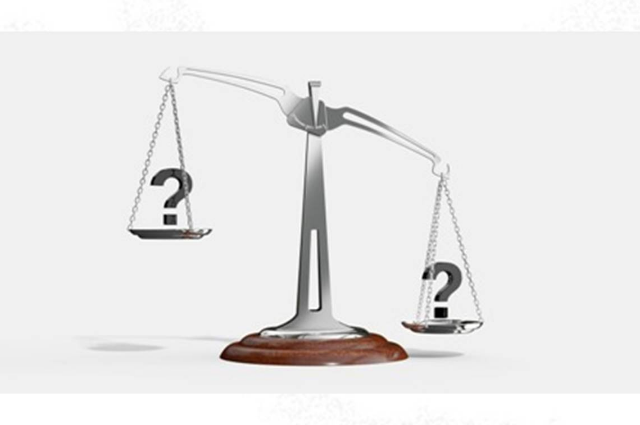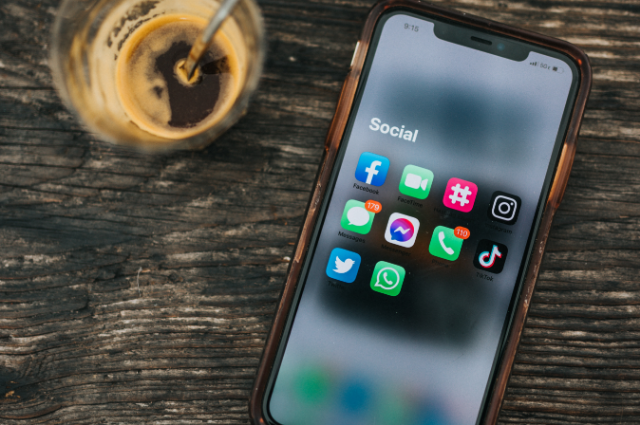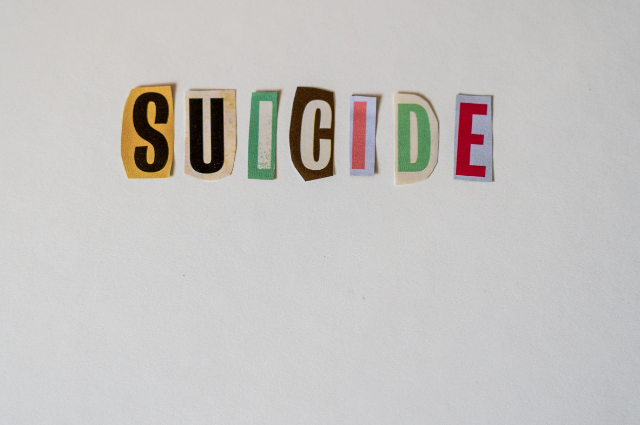
What started as a harmless indulgence, as means of connecting, has now become an inescapable addiction, at least for most in our society. So much so that this harmless indulgence is now unavoidably controlling our lives. How we see, think, react and respond to our externalities and more importantly to ourselves.
Welcome to the world of new-age social media!

Photo by Alexander Shatov on Unsplash
Much has been said and told about the benefits of social media and certainly, there are, as was witnessed during the outbreak of COVID19. People could stay connected with each other, information gathering on the supply and demand of essential commodities could be identified, arranged, and tracked in real-time and a host of other applications social media was put to use cannot be denied. However, the evident danger associated with it deserves serious attention, understanding, and consensus building.
The lawsuit filed against the social media giants such as Facebook, Snapchat, and Instagram over the suicide of a teenager in the US, who suffering from an obsession with his body image is a testimony of the growing problem that has taken off sooner than later in most other parts of the world too. There were thousands of internal company documents leaked by Facebook whistleblower indicating that the company was aware of problems caused by its apps, including how Instagram can damage body image beside the addictive nature of the products these companies offered and failing to protect minors to see more, click more and hence more revenue.

Photo by Nathan Dumlao on Unsplash
In its internal research examining Instagram’s impact on “teenager's mental health”, the photo app showed that it could affect girls’ mental health on issues such as body image and self-esteem. Later Facebook released two slide decks of research on the mental health impact of Instagram.
The first deck presented the survey results of more than 22000 users across the US, Japan, Brazil, Indonesia, Turkey, and India with an estimated 30% of teen girls who felt that Instagram made dissatisfaction with their bodies worse. It further added that social comparison is the top mental health issue that Instagram should care about.
The second deck of research released by Facebook “teen mental health deep dive” is based on a survey of more than 2500 teens in the UK and US. One slide showed that of Instagram users who had wanted to kill themselves, 6% in the US and 13% in the UK said that feelings had started on Instagram. It also added that one in four in the US and UK felt unattractive about themselves and the feeling started on Instagram. One in five teens admitted of Instagram makes them feeling negative about themselves, with UK girls (one in four) the most negative.
One of the respondents also admitted that one can never win on social media as nothing is enough and things run only in extreme and one just ends up feeling “worthless and shitty about oneself”.
Consider the case of Telegram, a messaging app that boasts of encrypting users’ messages and preventing government oversight. It allows for the creation of channels for group activities which now are increasingly being used and under increased scrutiny for the proliferation of sexually explicit materials. Here again, users’ irresistible urge to exchange pictures of their activities whether at home, gym, kitchen, or elsewhere make them prone to sexual predators lurking online. Combine these activities with existing and evolving technologies such as Photoshop, AI-enabled photo development, and several other apps in use, making the task of such predators much easier.
Comparison: As the world knows it
An innate characteristic of us, humans, is to compare ourselves, with people around us, with the world, sometimes openly and mostly covertly. It is a characteristic of ours that plays continuously within us and lies subdued until we come across a situation, a person, or an argument that challenges our beliefs, thoughts, values, and environment which have given us a distinct identity about ourselves.
Whenever this comparison runs in our favor, it raises our self-esteem, so to speak, but mostly it feeds our ego unknowingly, giving us a feeling of being special among the rest. However, when this same comparison runs contrary to our expectations, it bears us dejection and a sense of unworthiness.
Just like the topic, consider comparing these two results of comparison itself.
The former, as mentioned, makes us feel special among the rest. Out of this feeling of being special, is borne, the idea of having power and influence over others. The next logical step that follows is the exercising of this power over others to increase it further, which in return, further enhances our self-esteem (in most cases, the ego) and the process continues, since to a common mind knowing when to stop is like putting a brake to their ever-increasing happiness which results from the exercising of the power over others. An associated but unrealized danger with this process is that the more it runs in our favor the more speed it gains. Any hindrance to this ever-increasing process is realized as an insult rather than a breaker that allows us to step down our speed and scale down our attempts to pursue unlimited power and influence. The result is that “speed thrills but it kills!” a common signboard we all must have seen on highways and roadways.
Accordingly, when people fall, which they will, their self esteems crashes and the sad but logical fact is that the more pace a person acquires in the process the more devastating the fall, the more destructive the crash, and the more highly shattered the ego is. Hence, speed is undoubtedly a critical factor in this process.
Consider the latter case, when we fall short in our comparison with others. The result is dejection and from it, first arises sorrow that turns into pain and finally into anger. The first job of anger is to attack one’s sanity and kill the ability to think intelligently if not wisely. In other words, people lose their ability to discriminate. The absence of discrimination breeds self-pity and grief and a sense of being exploited by the world. The result is “revenge-seeking” as a means to regain the lost respect or sense of worth. Consider the cases of “revenge porn” a phenomenon in which the jilted lovers post images and videos of their private and intimate moments with their partners as a means to quench their anger. The result is humiliation and in many cases suicide.

Photo by Nick Fewings on Unsplash
Though doubt is undeniably a better friend than trust, the problem arises when the person tends to doubt everyone and everything around them. They tend to distance themselves from everyone and choose to become a recluse looking only at the incomplete picture of the life they have created and that only speaks what they wish to hear and reinforces their miscalculated version of life on which their false conception of reality stands. The more time passes the firmer the beliefs turn, which in its extreme changes us into a different person, from what we “were” to what we “are”. Here too, any diversion from the current position is thought of as an insult or mockery of one’s existing values and beliefs. Any contradicting outlook tends to sweep away the very foundations of our identity structure that were built over time by our lopsided understanding of our experiences, and how incomplete they might have been. “Personal Imagination” triumphs over “true reality” and “Self-destruction” win over an “informed life”.
Let’s contrast both perspectives!
In both perspectives, a sense of discrimination is lacking due to which one is not able to differentiate facts from theory or more importantly reality from illusion.
A false perception of life takes over the true reality and faces a constant danger of falling flat on its face anytime. To save face the person constantly struggles for maintaining the status quo as the false perception is not just the reality he or she created but also the very foundation of his or her identity. They tend to live in constant fear of losing it and the result is anxiety and concomitant problems of health that surface sooner than later.

Image by Jan Vašek from Pixabay
The fact of the matter is that both perspectives, though run in opposite directions, offer different experiences, different mindsets, values, and outlooks, yet produce the same result in the end.
Therefore is advisable is to have a neutral position. It is similar to standing atop a mountain and looking at the valley below. You can see the trenches, the turns, the waterfall, the rivers, the bends, and the cliffs in all their forms. You make yourself aware of the secured and quick paths, should you ever decide to go down to it, be mindful of the danger zones, the turns, and the bends and avoid them.

The experience of going down the mountain and into the valley will be quite different from the summit and unexpected situations might also catch you off guard, however that uncertainty will and should be there as that is what adds beauty and charm to life and prevents it from turning boredom ridden. Still, you would have a clear picture in your mind of where you are headed, what to avoid and what alternative courses to follow should your first plan fails for any uncalculated reason.
What’s important to understand and accept is that a life without adventure is likely to be unsatisfying, but a life in which adventure is allowed to take whatever form it will is sure to be short.
One, therefore, needs to be sure or at least have some idea of what they want from themselves first and secondly from life and try to bring both in harmony with their informed actions.
Whatever is witnessed on social media is either an exaggerated version or half-baked truth with no feet grounded in reality. It has become a medium to flaunt themselves people, more so by those who are grappling with reality in the search for an identity. Photoshopped into a world of illusion, such people’s lives are controlled by the number of likes and dislikes they receive. The problem runs to such an extent that it results in anxieties and mental disorders. The need to look perfect subdues the need to feel perfect.
Seeking perfection in what one does is fine however requires constant vigilance of the mind. If it turns into motivation, it raises an individual from rags to riches, from ordinary to extraordinary. However if it is let loose and allowed to be turned into an obsession, the ruin of health and mind follows without fail.
Most importantly, it is to be understood that it is our imperfections that make us vulnerable, a characteristic feature of us humans. It is these imperfections that make us interdependent which in turn allow human beings to complement each other in every realm of life. Had each human being been perfect in themselves, why would any of us need others at all? No one would need admirers, friends, partners, or relations at all! The world would become an absolutely cold space. It is because of these imperfections in the natural world that “unity in diversity exists”. This unity in diversity is the plan of nature which can only be accomplished by the multifarious imperfections coming together and complementing each other to achieve unity. Without imperfections, the world shall cease to exist!
Lastly, it is to be remembered that technology is a double-edged sword, it can be a tool to build or a weapon to destroy and given the falling values of humanity in these times, it’s mostly the latter that stands good.
“We must give up many things to which we are addicted, considering them to be good. Otherwise, courage will vanish, which should continually test itself. The greatness of soul will be lost, which can’t stand out unless it disdains as petty what the mob regards as most desirable”
-SENECA, MORAL LETTERS, 74. 12B- 13
